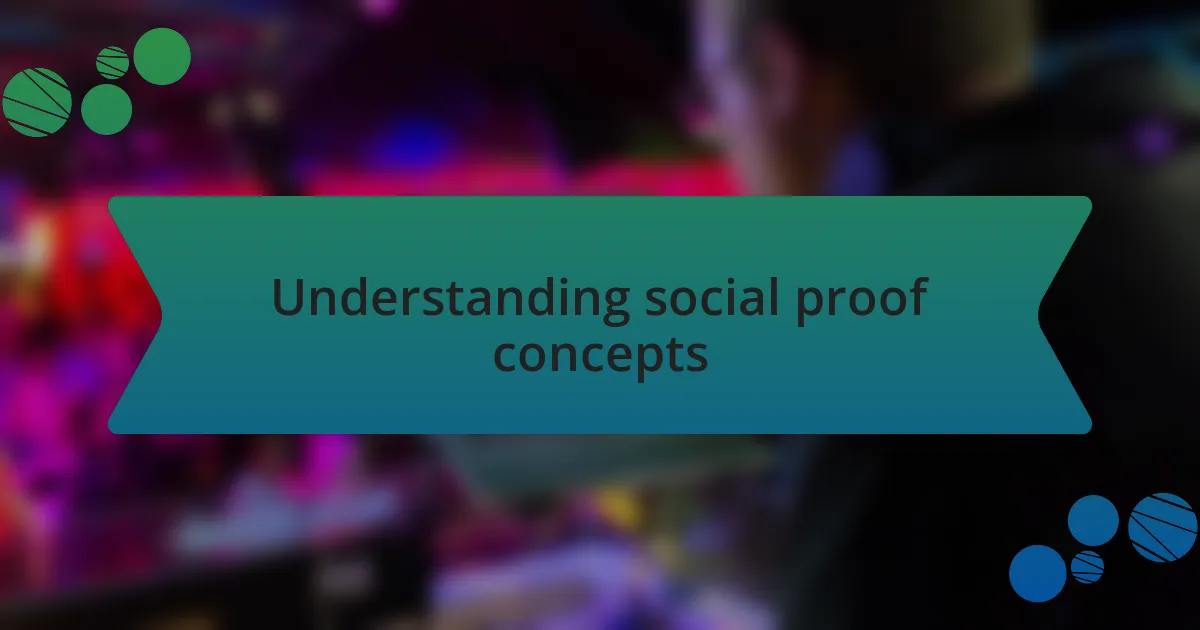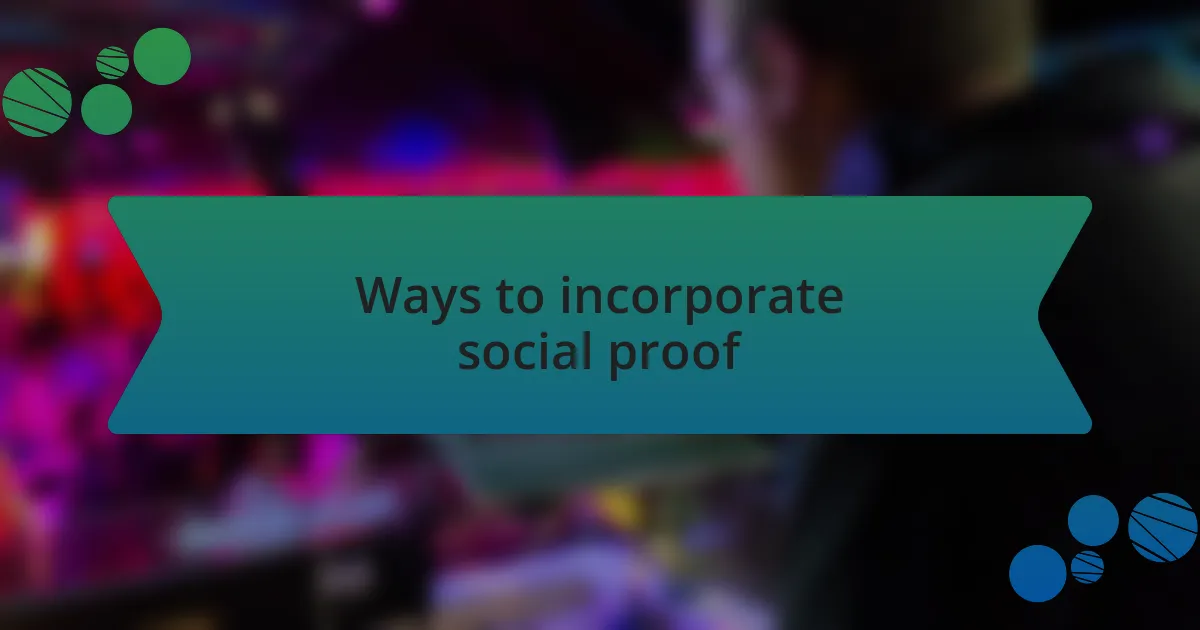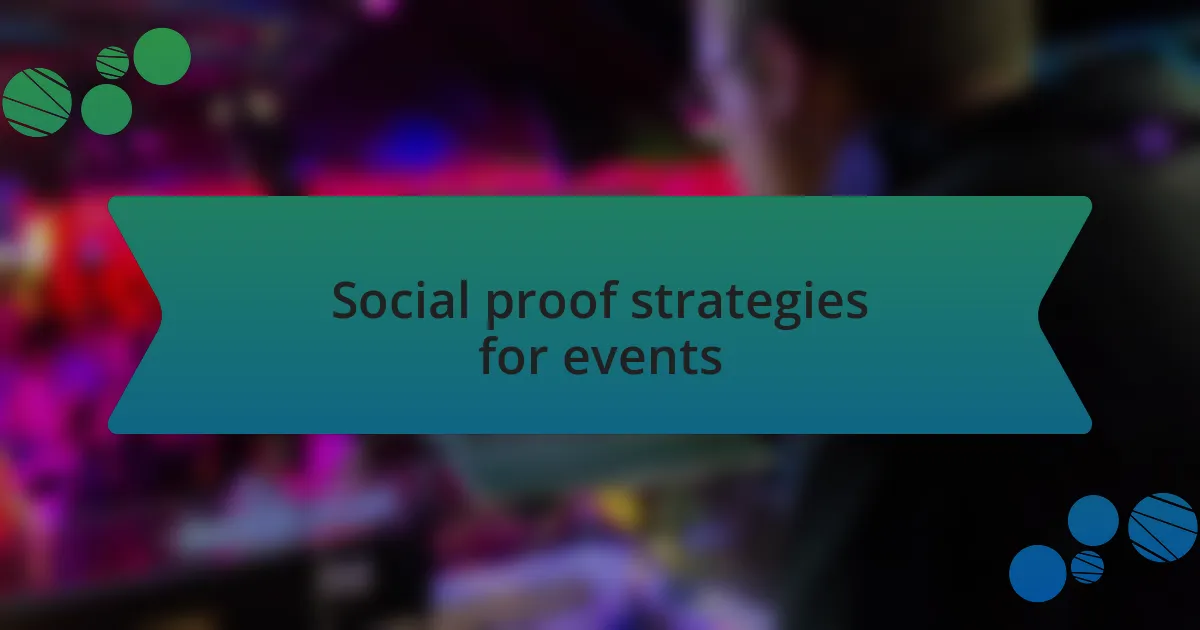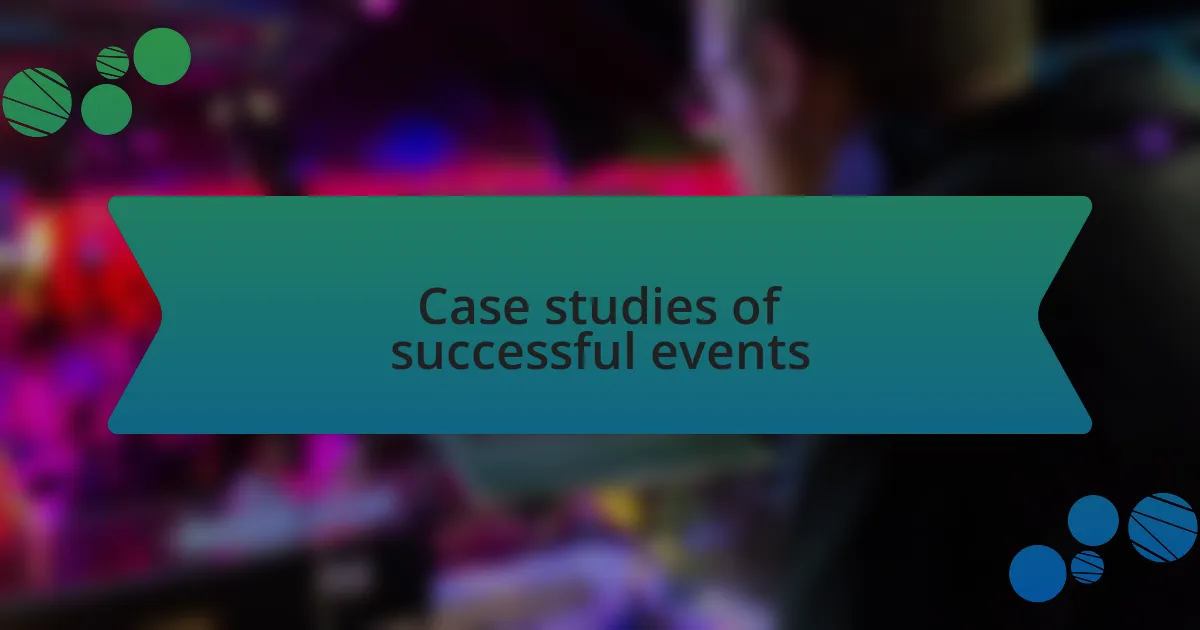Key takeaways:
- Social proof influences behavior by validating choices through others’ actions, such as testimonials and reviews.
- Real-time social media engagement boosts interest in events, as potential attendees are drawn in by friends’ interactions.
- Strategies like influencer endorsements and limited-time offers enhance credibility and create urgency in event promotions.
- Successful events effectively use authentic testimonials and behind-the-scenes content to foster excitement and community connection.

Understanding social proof concepts
When I first delved into the concept of social proof, I was struck by its simplicity and effectiveness. It’s the idea that people look to others’ actions to determine their own behavior. Reflecting on my early experiences promoting events, I noticed how the presence of a large crowd often drew in more attendees, confirming the power of this phenomenon.
Consider a time when you hesitated to try a new restaurant but decided to go because of a friend’s glowing review. That’s social proof in action! It’s inherent in our nature to seek validation from peers, and as I embraced this insight for event promotion, I realized how vital testimonials and reviews could be in drawing an audience and building trust.
As I continued to explore social proof, I learned that it encompasses different forms, like expert opinions or user-generated content. I remember highlighting DJ endorsements for an upcoming festival; their followers trusted their judgment. It made me ponder: how often do we overlook the influence of a well-placed recommendation? Understanding these layers of social proof can unlock immense potential in effectively engaging our audience.

Ways to incorporate social proof
One effective way I incorporate social proof is by showcasing real-time engagement on social media. I once posted a countdown to our label’s event and watched as excitement built through likes and shares. When potential attendees see their friends engaging, it instantly validates their interest—how many times have you felt more inclined to attend something because others were buzzing about it?
Leveraging testimonials is another valuable strategy. I remember gathering feedback after an event, and the most compelling quotes became key elements in our promotional materials. When prospective attendees read firsthand accounts of how amazing the experience was, it sparked genuine intrigue. It’s fascinating to witness how a simple review can shift perceptions, isn’t it?
Incorporating visuals, like photos or videos from past events, further elevates this concept. I recall sharing a vibrant video montage highlighting our previous showcases. The energy was palpable, and viewers could almost feel themselves there, grooving to the music. This sensory connection not only reinforces the allure of our upcoming events but also prompts the question: if others had such a great time, why wouldn’t you want to join?

Social proof strategies for events
One strategy that really stands out to me is leveraging influencer endorsements. I remember collaborating with a local DJ who had a significant following on social media. As soon as he shared a post about our event, I noticed a spike in ticket sales. It made me think—how often do we trust a friend’s recommendation over a generic advertisement? That influencer’s seal of approval gave our event an added layer of credibility that traditional marketing often lacks.
Another approach I’ve found effective is creating a sense of urgency through limited-time offers. During a recent promotion, we highlighted that only the first 100 ticket buyers would receive exclusive merchandise. I still recall the flurry of activity as people raced to secure their spot, driven by the fear of missing out. It’s intriguing how a simple tactic can amplify excitement—who doesn’t want to be part of something special?
Lastly, building community through user-generated content truly resonates with attendees. I encouraged fans to share their experiences using a specific hashtag, and the flood of photos, videos, and stories became a vibrant tapestry of memories. When potential attendees see this collective enthusiasm, it stirs an emotional connection. Doesn’t it make you want to be part of a thriving community? That’s the power of social proof.

Case studies of successful events
I remember attending a festival last summer that operated entirely on social proof. The event team showcased testimonials from past attendees prominently on their website and social media. They didn’t just share words; they developed a narrative around the experiences people had. Seeing those genuine reactions made me think, “If they had such a great time, maybe I will too.” It’s fascinating how such authentic endorsements can convert skepticism into excitement.
One particularly memorable case was a last-minute event that faced low ticket sales. The organizers switched gears, featuring live video testimonials on their event page. As people tuned in, they saw previous attendees sharing their incredible experiences in real time. This strategy not only boosted ticket purchases but also fostered a sense of urgency—those who witnessed the excitement wanted to join in. Doesn’t this approach make you consider how powerful live experiences can be?
I’ve also had a hand in events that utilized behind-the-scenes content to draw interest. By sharing sneak peeks of pre-event setup on social media, we highlighted crew members working hard to create an unforgettable experience. Seeing the dedication behind the scenes got people talking and sharing the posts. Isn’t it incredible how transparency can create a deeper connection? I found that it not only built anticipation but also made attendees feel like they were part of something larger than a simple event.